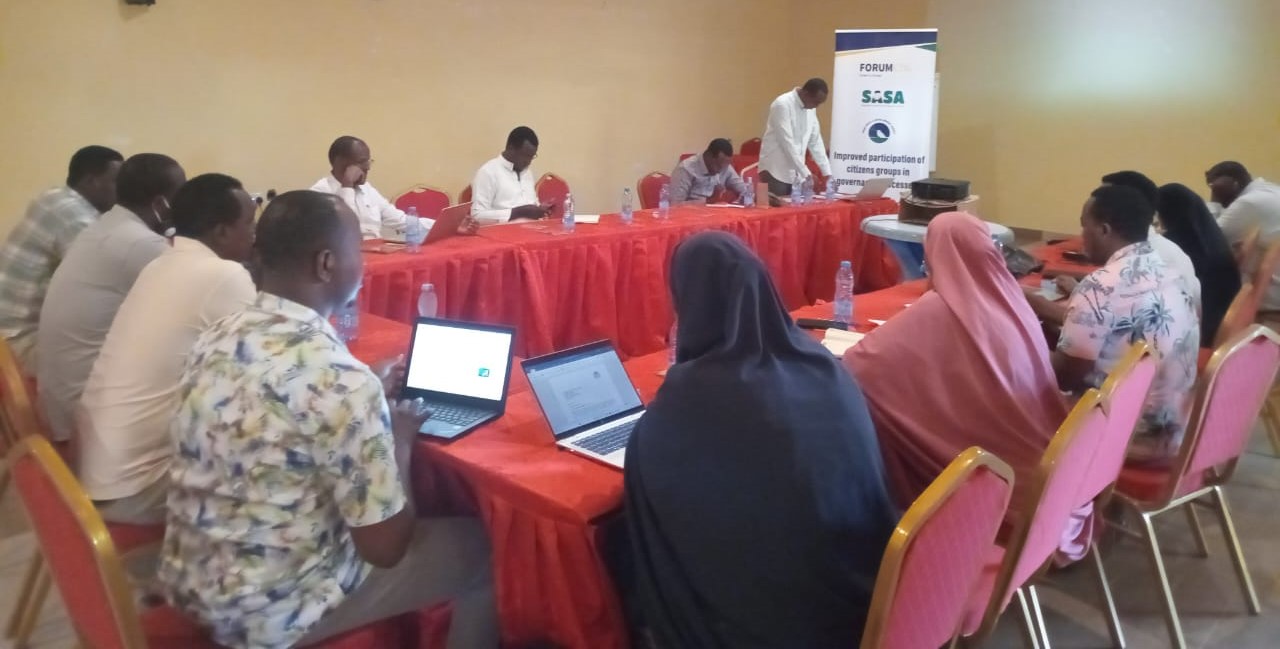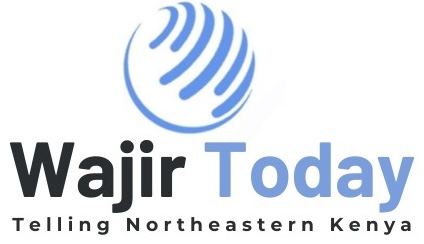
By Wajir Today Reporter
Civil Society Organisations (CSOs) met in Wajir town on Thursday to address governance gaps during a workshop hosted by Wajir Peace and Development Agency, a leading non-governmental organisation in the county.
With the objective of improving citizen participation in governance processes, the agency hosted about 20 civil society organisations operating in the county for a stakeholder dialogue.
The one-day forum, under the programme Strengthen Agency for Social Accountability (SASA) funded by ForumCiv, sought to promote inclusive governance and human rights principles.
“We are here today to improve citizen participation in governance processes in Wajir County,” said Mr. Abdinoor Omar, Programme Officer at Wajir Peace and Development Agency. “We have invited local organisations from a cross-section of the county to advance and address gaps in governance.”
Participants sought to strengthen civil society solidarity in building the capacity of local communities to achieve responsive and accountable governance structures.
“The objective is to achieve increased constructive dialogue between citizens and leaders and also enhance the participation of women and youth leaders in dialogue with elected leaders and other stakeholders,” Mr. Omar noted.
The agency, together with other project partners, is conducting campaigns to educate local communities on the values of good leadership and governance at the county level.
“We are sharing ideas and perspectives on governance while engaging with key stakeholders, including the local County Assembly, County Directorate of Governance and Public Participation, CBOs, women, youth and leaders,” added Omar.
The dialogue is an invigorated effort to empower citizens to hold their leaders to account, especially in this part of the country that has suffered from several decades of marginalisation.
Local civil society organisations in the SASA programme are urging local leaders to adopt a citizen-driven approach and an open policy of leadership in an effort to make governance more transparent and accountable.
Among those who attended the workshop were county officials, who are expected to herald a new paradigm shift in local governance and administration with a view to advancing democratic principles.
“We are taking a multisectoral approach to deal with governance issues and sensitise the local community,” said Adan Abdi, Wajir County Director of Public Participation and Peace Building.
Stakeholders’ conversations are expected to set the wheels in motion for inclusive governance reforms in the expansive county while bringing to light gaps in citizen engagement.
With other key stakeholders such as the regional offices for the Kenya National Commission on Human Rights and the National Cohesion and Integration Commission joining the campaign, participants are tightening the screws to imprint the values and ideals of good governance.
“One of the objectives of the programme is to improve the participation of women and youth so that they amplify the values of good governance,” said Mr. Omar from Wajir Peace.
The platform also addressed emerging issues in the county that include various socio-economic challenges, such as human trafficking, the impact of migrants from neighbouring Ethiopia, and the increasing number of settlements that are overstretching local resources.
The discussion comes in the wake of the recent arrest of 10 youths in Gurar, raising fresh concerns over the scale of the problem and the urgency for decisive action from authorities.
Wajir has recently come under the spotlight for escalating cases of human trafficking, where tens of local youth have fallen victim to smugglers luring them with promises of job opportunities in Europe and America.
Participants at the forum attributed emerging social problems in the county to gaps in governance, citing youth unemployment, human trafficking -locally known as Tahrib- and widespread drug abuse as pressing concerns.
They noted that human trafficking, in particular, places a heavy financial burden on families, as parents and relatives of trafficked victims are often forced to pay ransoms to secure their release.
“We are also discussing emerging issues that include human trafficking that has become a concern for Wajir communities,” said Abdishakur Adan, the Executive Director of African Social Development Focus (ASDEF), one of the local organisations attending the forum.
Over the past few months, the number of teenagers falling victim to global human trafficking syndicates has been on the rise in the county, raising concerns among community members.
“We are concerned about the increasing number of local youths falling victim to human traffickers. The community is losing a lot of money in ransoms paid to traffickers abroad,” explained Adan.
The forum concluded with a strong call for sustained civic engagement, inclusive leadership, and heightened vigilance against social challenges undermining community resilience. Participants emphasised that collaboration among CSOs, government, and citizens is key to building accountable governance and safeguarding the future of Wajir.

